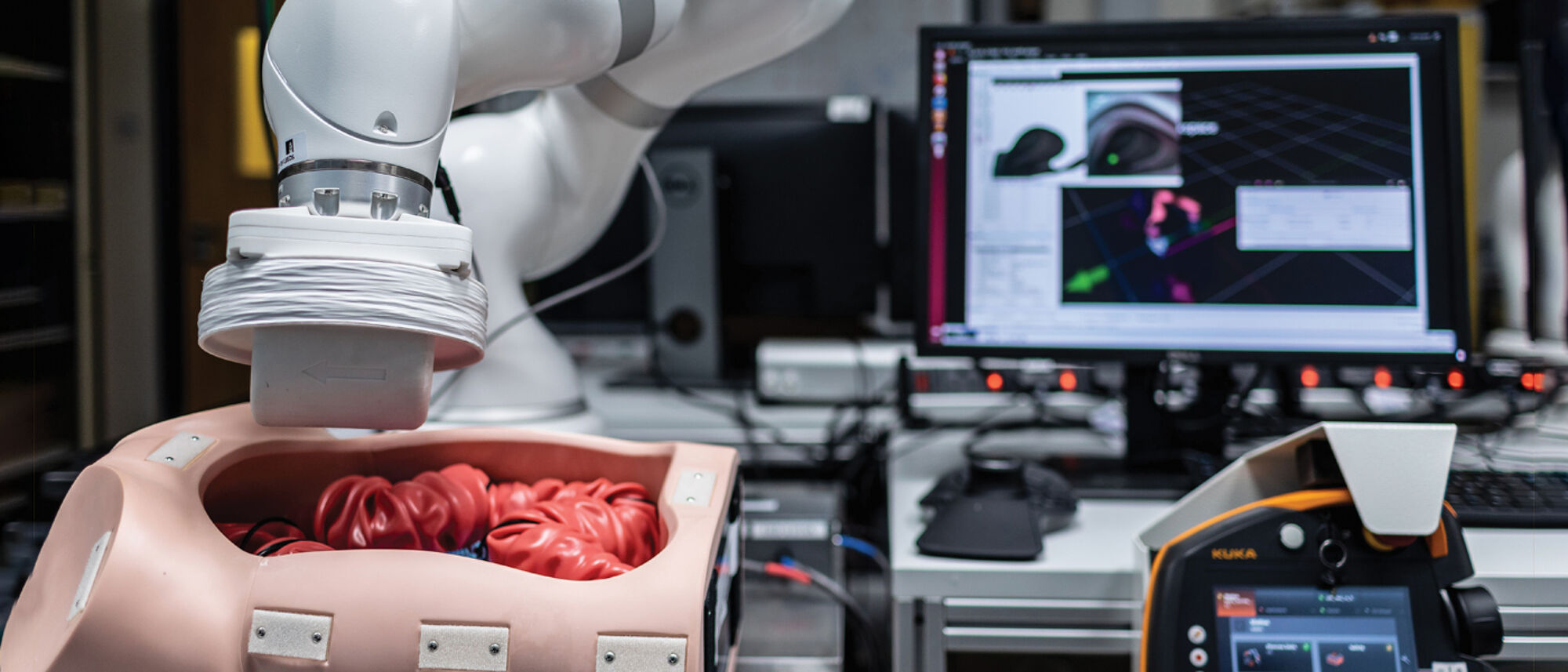
Easier to digest
Engineers have shown that it is technically possible to use an artificial intelligence system to guide a tiny robotic capsule inside the colon to take micro-ultrasound images.
Known as a “Sonopill”, the device could spell the end of painful endoscopic examinations for patients, where a semi-rigid scope is passed into the bowel.
The micro-ultrasound images captured by the Sonopill are also better able to identify some types of cell change associated with cancer.
The Sonopill is a small capsule with a diameter of 21mm and length of 39mm which the engineers say can be scaled down. The capsule houses the micro-ultrasound transducer, an LED light, a camera and a magnet.
A very small flexible cable is tethered to the capsule and that also passes into the body and sends ultrasound images back to a computer in the examination room.
The Sonopill is the culmination of a decade of research by an international consortium of engineers and scientists, who have developed a technique called intelligent magnetic manipulation. Based on the principle that magnets can attract and repel one another, a series of magnets on a robotic arm that passes over the patient interacts with a magnet inside the capsule, gently manoeuvring it through the colon.
The magnetic forces used are harmless and can pass through human tissue, doing away with the need for a physical connection between the robotic arm and the capsule.
The artificial intelligence system ensures the capsule can position itself correctly against the gut wall to get the best-quality micro-ultrasound images. The feasibility study also showed that if the capsule gets dislodged, the artificial intelligence system can navigate it back to the required location.
Sandy Cochran, Professor of Ultrasound Materials & Systems at Glasgow, is lead researcher: “With an increasing demand for endoscopies, it is more important than ever to be able to deliver a precise, targeted and cost-effective treatment that is comfortable for patients.
“We hope that the Sonopill will be available to all patients in the near future as part of regular medical check-ups, effectively catching serious diseases at an early stage and monitoring the health of everyone’s digestive system.”
This article was first published September 2019.
Photo: University of Leeds
Bowel cancer is the UK’s second biggest cancer killer and is on the rise among those aged under 50. Diseases of the gastrointestinal tract account for 8 million deaths a year across the world.

